Tackling violent conflict and extremism in Karachi
Robust political will, enhanced operational capacity and depoliticizing of police force, and better coordination between law enforcement and intelligence agencies are imperative to effectively tackle the ongoing unrest and violence in Karachi. These views were expressed by speakers in a seminar on “Tackling violent conflict and extremism in Karachi” organized jointly by Pak Institute for Peace Studies (PIPS) and AKTIS Strategy in Islamabad on May 16.
The speakers also called for community engagement at local level in decision-making, devising policies pertaining to local government, and political consensus to tackle the menace of violence, conflict and to make Karachi a stable and economically strong and vibrant city. They also urged the federal and provincial governments to evolve short- and long-term strategies to deweaponize Karachi and make it drug free cosmopolitan city. They underscored the importance of integrating the country’s economic hub into national fabric on priority basis.
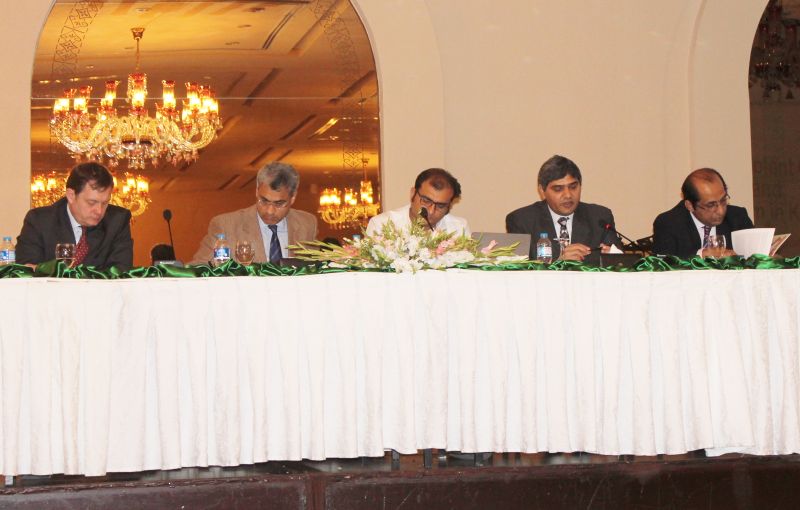
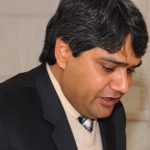 Director PIPS Muhammad Amir Rana said many experts link the prevailing insecurity and violence in Karachi with the phenomenon of urbanization. The new immigrants in the city are also associated with the ongoing sectarian violence there. He said the unabated incidents of violence and militancy suggest that the ongoing security operation in Karachi has not achieved significant success. He said holding of immediate local body elections and a thorough understanding of ethnic diversity and sectarian divide in the city could help mitigate the risk of violence.
Director PIPS Muhammad Amir Rana said many experts link the prevailing insecurity and violence in Karachi with the phenomenon of urbanization. The new immigrants in the city are also associated with the ongoing sectarian violence there. He said the unabated incidents of violence and militancy suggest that the ongoing security operation in Karachi has not achieved significant success. He said holding of immediate local body elections and a thorough understanding of ethnic diversity and sectarian divide in the city could help mitigate the risk of violence.
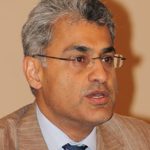 AKTIS Strategy Country Director Ameen Jan described the growing extremism and violence in Karachi as critical national issues and matters of national priority. He said political and criminal violence and extremist militancy are among the major factors causing unrest in the city which significantly contributes to the country’s GDP. The number of police personnel as compared to the population of the city is disproportionate and without the involvement of locals and local bodies’ representatives, putting the entire responsibility on police and security forces won’t solve the problem, he said.
AKTIS Strategy Country Director Ameen Jan described the growing extremism and violence in Karachi as critical national issues and matters of national priority. He said political and criminal violence and extremist militancy are among the major factors causing unrest in the city which significantly contributes to the country’s GDP. The number of police personnel as compared to the population of the city is disproportionate and without the involvement of locals and local bodies’ representatives, putting the entire responsibility on police and security forces won’t solve the problem, he said.
 Dr. Andrew Rathmell, Managing Director of AKTIS Strategy, said Karachi is anticipated to have one of the fastest population growth rates at least for the next decade that will entail growing complexities. He highlighted the lack of coordination between different civic departments in the city and was of the view that there was a dire need to enhance and strengthen the local police system while equipping them with the latest resources. He also spoke about the involvement of community in the whole process as that could help building people’s confidence in local police.
Dr. Andrew Rathmell, Managing Director of AKTIS Strategy, said Karachi is anticipated to have one of the fastest population growth rates at least for the next decade that will entail growing complexities. He highlighted the lack of coordination between different civic departments in the city and was of the view that there was a dire need to enhance and strengthen the local police system while equipping them with the latest resources. He also spoke about the involvement of community in the whole process as that could help building people’s confidence in local police.
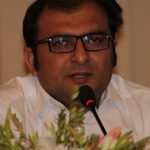 A senior journalist and author of “Karachi in Turmoil” Zia Ur Rehman said many groups have been involved in violence in Karachi with the Tehreek-i-Taliban Pakistan (TTP) being a recent actor. The continuing ethno-political conflict between the Muttahida Qaumi Movement (MQM) and Awami National Party (ANP) provided the TTP space to consolidate its position in the city. The TTP has been organizing itself in Karachi since the 2009 military operation in Swat and a subsequent military operation against Mehsud tribes in North Waziristan. Until June 2011, the TTP’s focus on Karachi was related to raising funds but after that it got involved in terrorist attacks, initially targeting the leadership of the ANP. The TTP has also killed several so-called pro-government tribal leaders from Swat who had been visiting Karachi. He said there are at least three factions of the TTP operating in Karachi. Law enforcement agencies have mainly targeted the Mohmand chapter of the TTP which is involved in killing of several police officials including Chaudhry Aslam in Karachi. He also highlighted the rise of several other banned militant and Sunni and Shia sectarian groups and gave a detailed overview of their nexuses, operations, finances and outreach in different areas of Karachi.
A senior journalist and author of “Karachi in Turmoil” Zia Ur Rehman said many groups have been involved in violence in Karachi with the Tehreek-i-Taliban Pakistan (TTP) being a recent actor. The continuing ethno-political conflict between the Muttahida Qaumi Movement (MQM) and Awami National Party (ANP) provided the TTP space to consolidate its position in the city. The TTP has been organizing itself in Karachi since the 2009 military operation in Swat and a subsequent military operation against Mehsud tribes in North Waziristan. Until June 2011, the TTP’s focus on Karachi was related to raising funds but after that it got involved in terrorist attacks, initially targeting the leadership of the ANP. The TTP has also killed several so-called pro-government tribal leaders from Swat who had been visiting Karachi. He said there are at least three factions of the TTP operating in Karachi. Law enforcement agencies have mainly targeted the Mohmand chapter of the TTP which is involved in killing of several police officials including Chaudhry Aslam in Karachi. He also highlighted the rise of several other banned militant and Sunni and Shia sectarian groups and gave a detailed overview of their nexuses, operations, finances and outreach in different areas of Karachi.
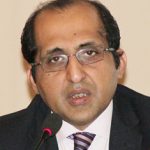 Director Programs at ISAPS Ahmad Ali said civilians and non-combatants are the main victims of the ongoing violence and militancy in Karachi. No regular policy or losses of lives in Karachi have been acknowledged by the state. “It takes a plenty of time for the government to respond as far as compensations to the victims are concerned, and a number of violations are never reported,” he said.
Director Programs at ISAPS Ahmad Ali said civilians and non-combatants are the main victims of the ongoing violence and militancy in Karachi. No regular policy or losses of lives in Karachi have been acknowledged by the state. “It takes a plenty of time for the government to respond as far as compensations to the victims are concerned, and a number of violations are never reported,” he said.

